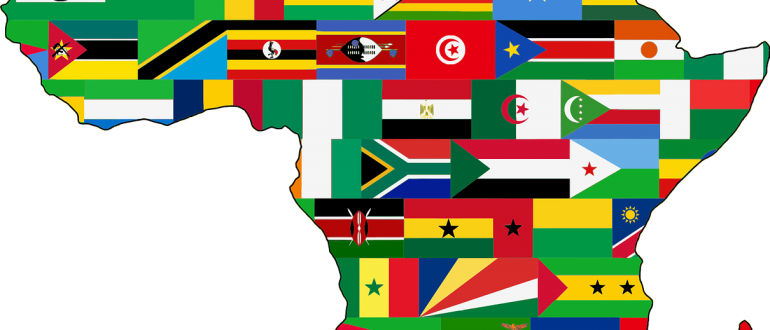
Why Africa should lead the future of the World Trade Organization
One of the most hotly contested leadership races of international consequence is drawing attention to the happenings in Geneva. The World Trade Organization (WTO), the International organization responsible for the regulation of international trade between nations since 1995, is electing a new Director-General to lead its journey for the next four years.
Following the surprise resignation of the current Director General Roberto Azevedo, a new call is coming from the African nations for an African leader for global trade. There are several reasons that not only indicate that Africa is the better choice, but also that it is now time for the oldest continent in the world to take the reins of the ailing organization, with pressures mounting on major trade actors to support an African bid.
However, conflicts between African nations and the lack of a united African Union (AU) candidate seems to be making the prospects of an African Director-General weaker by the day. With clashes between Nigeria, Kenya and Egypt in regards to leadership position, it is important to re-emphasize on why Africa should be the one that holds the reigns of the future of world trade.
There has never been an African or female Director General of the WTO
The first reason stated by many in support of African leadership is the alarming lack of representation at the WTO. Africa has never had the opportunity to see the position of Director-General being occupied by an individual from any of the 54 nations of the African continent. While many United Nations (UN) organs and other International Organizations are obliged to provide for representation when it comes to leadership positions under their constitutive treaties, such is not the case for the WTO. With representation and diversity being seen as something more important than ever before, it is imperative that nations move towards a newer, fresher perspective that could be provided by any one of the African candidates.
With Nigeria, Kenya and Egypt all proposing excellent, experienced candidates with their own strengths and unique views, it is also undoubtedly true that the African candidates are not in any way inferior to their western counterparts. Moreover, we can also consider the fact that with two out of the three African candidates being women, this election provides an opportunity for a trailblazer – an African Woman as an international trade leader, which would be a first of firsts for the organization. It is therefore imperative that with such an opportunity in front of us, states do not disregard the power of representation when it comes to positive change and inclusiveness.
Africa is one of the largest victims of the flaws in the current trade regime
There is no doubt that the current trade framework is wrong – this is something that countries ranging from the United States (US) to the Dominican Republic agree on. However, it is also true that Africa seems to be by far the largest victim when it comes to exports of cheap and sometimes unhealthy foods mainly from Europe that seem to be killing the local food producers.
From the flooding of subsidized poultry in Ghana[1] to the flooding of fat filled milk powder that devastated the dairy industry in West Africa, the current free trade regime is creating health and economic disasters in the continent. It has also become a crisis with some foreign companies boosted by subsidies, illegally fishing in African waters[2], wreaking havoc in the local marine ecosystem and the costal economy. With the way that unfair competition from foreign players keep harming African interests, it would not be unfair to say that the regime has been needlessly cruel with the African continent.
With the current trends moving towards more protectionism by African nations hit hard by the European Union (EU) zone’s subsidies, an African representative at the helm of the most prominent international trade organization can go a long way towards friendlier and fairer trade relationships between African and European States. This is more so, when considering the fact that the African candidates from Nigeria and Kenya have close governmental ties, which could be a move towards the easing of oftentimes bitter trade relations.
Africa is uniquely positioned as a neutral party to heal the current trade conflicts between the East and West
Being a country that has accepted investment and grants from the US, Europe and China, African nations hold a unique position whereby they are not necessarily under the influence of one specific power. With trade tensions between the US and China higher than ever, and US foreign policy having a distinctly anti-China view, it is absolutely vital for the new Director-General to be a neutral arbiter who is able to satisfy both the US and China, while not alienating everyone else.
As highlighted by Ngozi Okonjo-Iweala, the Nigerian candidate for the WTO leadership, African countries having relationships with both the West and the East may be the best compromise candidate[3] option between the two trade blocs. Their position of neutrality could make them uniquely suited to fix the troubles faced by the WTO, thereby making the international organization relevant again.
Developing countries being most affected by the COVID crisis must also be the ones to move towards recovery
If there is one observation that many International economists would agree in regards to the pandemic, it is that the COVID-19 pandemic is likely to hit African economies extremely hard. African Countries, being some of the most under-developed in the world, will likely be facing their first recession in 25 years, making the need for growth opportunities more crucial than ever.
Studies have shown that in the long run, trade openness might be favourable to economic growth, with such being the reason why Africa seems to be emphasizing heavily in its own regional trade agreement, the African Continental Free Trade Area (AfCFTA). With an African leader at the helm of the organization, we can hope for a much more understanding and nuanced approach towards trade, whereby the needs of the wrecked economies of developing countries are given the attention that they require.
When considering such, we can very much consider the catchall phrase coined by the eminent political economist George Ayittey, that of “African solutions to African problems”. With African leadership at the helm of the WTO, this viewpoint will likely hold some truth.
An African leadership at the WTO could benefit the subcontinent by promoting the AfCFTA
With the COVID-19 pandemic postponing the implementation[4] of the African Continental Free Trade Area (AfCFTA) to January 2021, an African leadership of the WTO can help the implementation of the trade agreement by providing full WTO support in order to ensure the deal’s success. With African companies being some of the least competitive economies[5] in the world, an Inter-African deal blessed by the WTO has more chances of success, which can have positive consequences for the economic situation in the subcontinent.
An African leadership can very much provide the African Union Commission with the support and expertise that it needs to be a success. Given the increasing pessimism in regards to the AfCFTA, an Africa-focused discussion on global trade rules can only be a boon for some of the poorest countries in the world.
The COVID-19 pandemic may have caused serious damage to trade, but it has not eliminated the prospects of a fairer and more just international trade system. While it is still possible for an African candidate to be elected as Director General, infighting between African countries has greatly hindered the coalition-building that is required to turn such an idea into reality. With the continent decried as the most underdeveloped in the world, and the effects of COVID-19 strangling last hopes for growth, it is well beyond the time for African leaders to roll up their sleeves, nominate a consensus candidate, and create a system that would be fairer to the continent.
References
[1] Livingstone, Emmet, and Simon Marks. “Ghana’s Poultry Industry Accuses EU of Unfair Competition.” POLITICO, POLITICO, 19 August 2020, www.politico.eu/interactive/ghanas-poultry-industry-accuses-eu-of-unfair-competition/.
[2] Belhabib, D. (2017). West Africa: Illegal fishing, the black hole in the seas. Samudra Report, (77). Retrieved from https://www.icsf.net/images/samudra/pdf/english/issue_77/4319_art_Sam77_e_art06.pdf.
[3]Marks, Simon, and Jakob Hanke Vela. “Nigeria’s WTO Candidate Looks to Bridge the US-China Schism.” POLITICO, POLITICO, 10 July 2020, www.politico.eu/article/ngozi-okonjo-iweala-nigeria-wto-candidate-looks-to-bridge-the-us-china-schism/.
[4] da Silva, Issa Sikiti. Pessimism Surges, but Many Insist African Free Trade Will Take Off, TRT World, 31 July 2020, www.trtworld.com/magazine/pessimism-surges-but-many-insist-african-free-trade-will-take-off-38556.
[5] Caroline Galvan,“What Are the 10 Most Competitive Economies in Sub-Saharan Africa?” World Economic Forum, 30 September 2015, www.weforum.org/agenda/2015/09/what-are-the-10-most-competitive-economies-in-sub-saharan-africa/.

Vishwanath Petkar
Vishwanath Petkar is a student of law at University Paris 2: Pantheon-Assas in Mauritius. He is interested in matters of International relations and International law, with specific focus in African issues.
